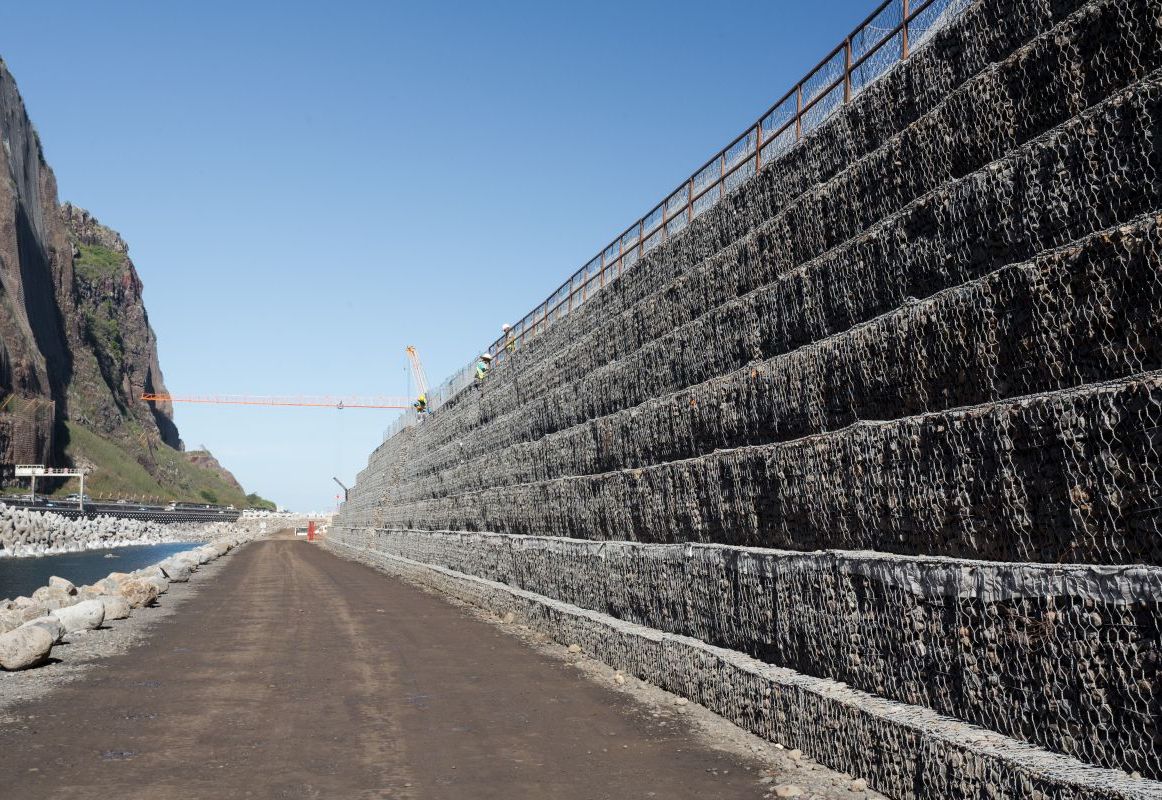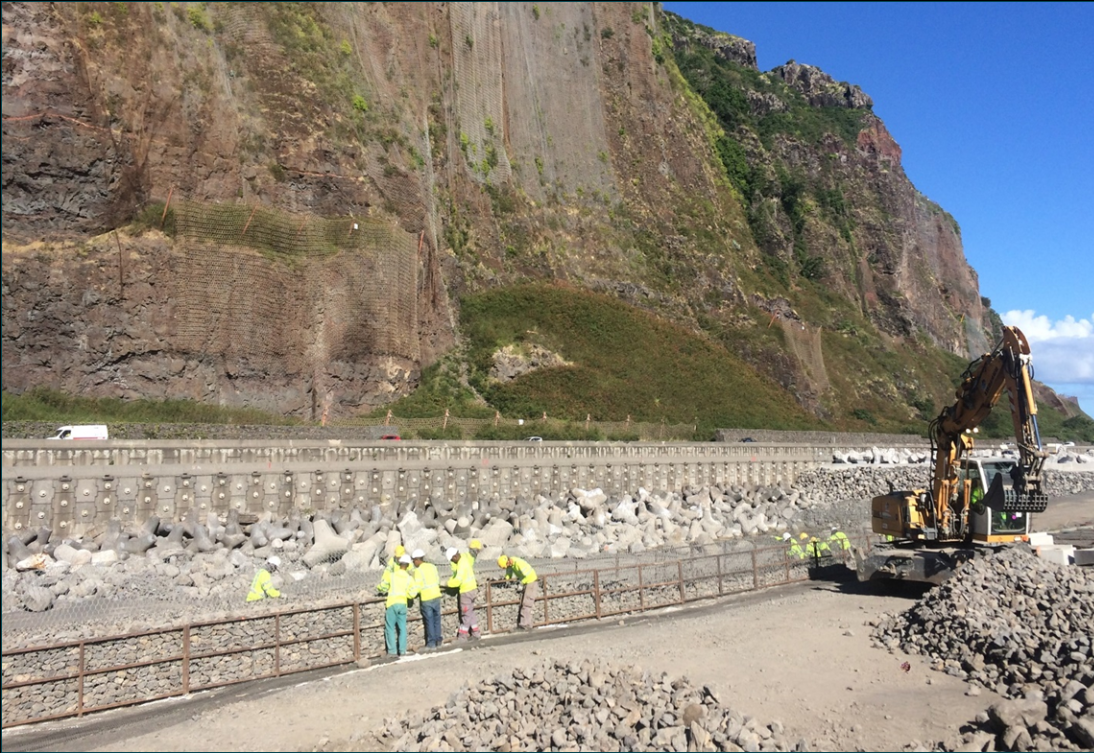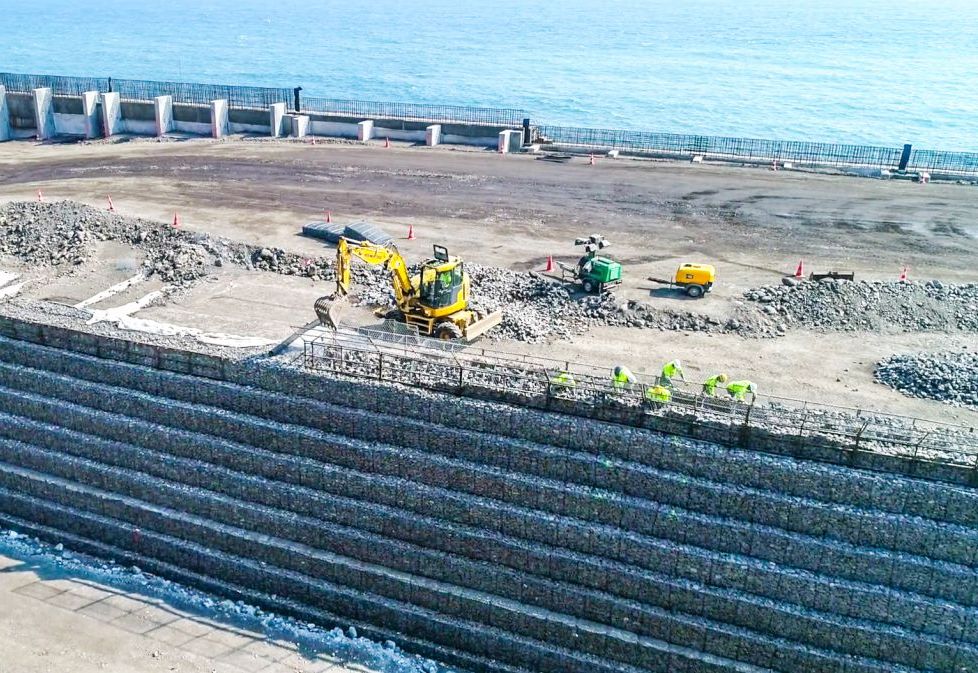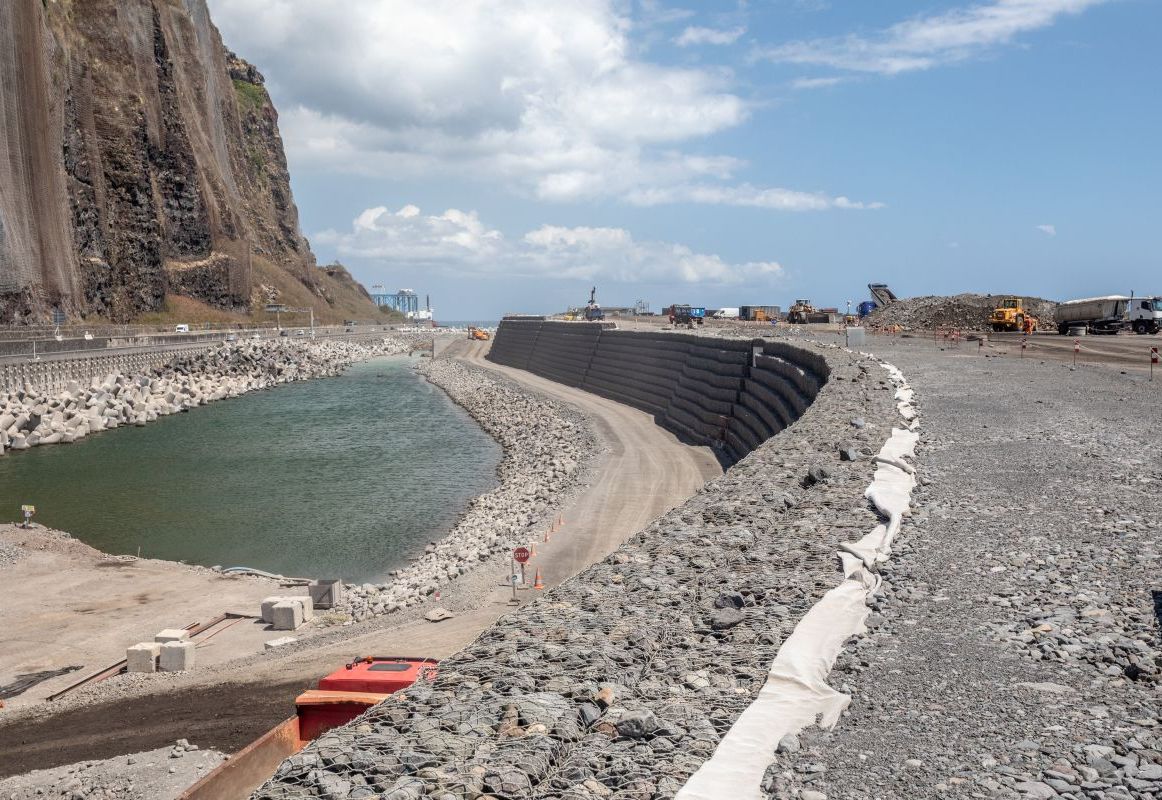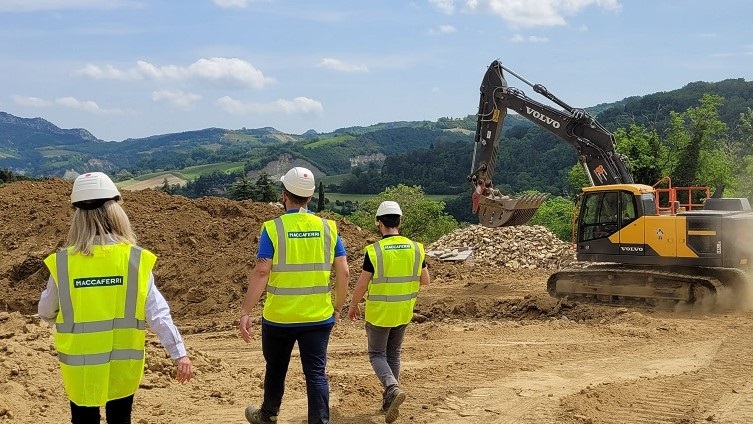Reinforced Soil Walls and Slope Reinforcement
2018
SAINT DENIS - ILE DE LA REUNION - France
Région Réunion
GTOI (Colas)/SBTPC (lot Digues)/Inexence OI
EGIS
THE NEW ROUTE DU LITTORAL
Problem
Situated between the sea and the cliffs, the current Route du Littoral (RN1) was subject to numerous rockfalls requiring frequent restrictions or closures and very heavy maintenance, and regularly causing fatal accidents, despite the barrier measures previously put in place.
The Nouvelle Route du Littoral (New Coastal Road), which is intended to replace the existing RN1, has been laid out at sea, 80 to 300 metres from the shore, to avoid the risk of rockfalls.
It is 12.5 km long, including 6.7 km of embankments and 5.6 km of viaduct, and 29 m wide (2×3 traffic lanes + BU + cycle paths). Total cost of the project: €1.6 billion. The road is based on a sea embankment and a viaduct: the Viaduct package being led by the Vinci/Bouygues consortium, and the Dykes package by the GTOI (Colas)/SBTPC consortium, which subcontracted the installation of the gabions to Inexence Réalisation OI. Four dykes were to be built, totaling 3 km in length.
Solution
The solution defined by the project management for the landward embankments was a geosynthetic stiffened embankment with a double-twist gabion facing. The dikes vary in height from 1 to 17 m. In addition to its retaining function, the structure had to be able to withstand the impact of a falling boulder with an intensity of 1300kJ, i.e. a 6.5T boulder thrown at 70km/h.
Having already taken part in a research project called REMPARE, which was designed to study the impact of boulders on gabion structures, and with recognised experience in this type of structure, Maccaferri was chosen to draw up the layout plans, layout drawings and supply around 60,000 m3 of double-twist gabions. The gabions can be replaced (self-stabilising reinforced mass at the rear) and in areas where blocks could reach the facing, a double gabion has been installed (approximately 60% of the facing of the dyke), serving as a fuse. The 4x1x1 cages are made of PVC-coated double-twist wire mesh, for greater durability in a maritime environment.
